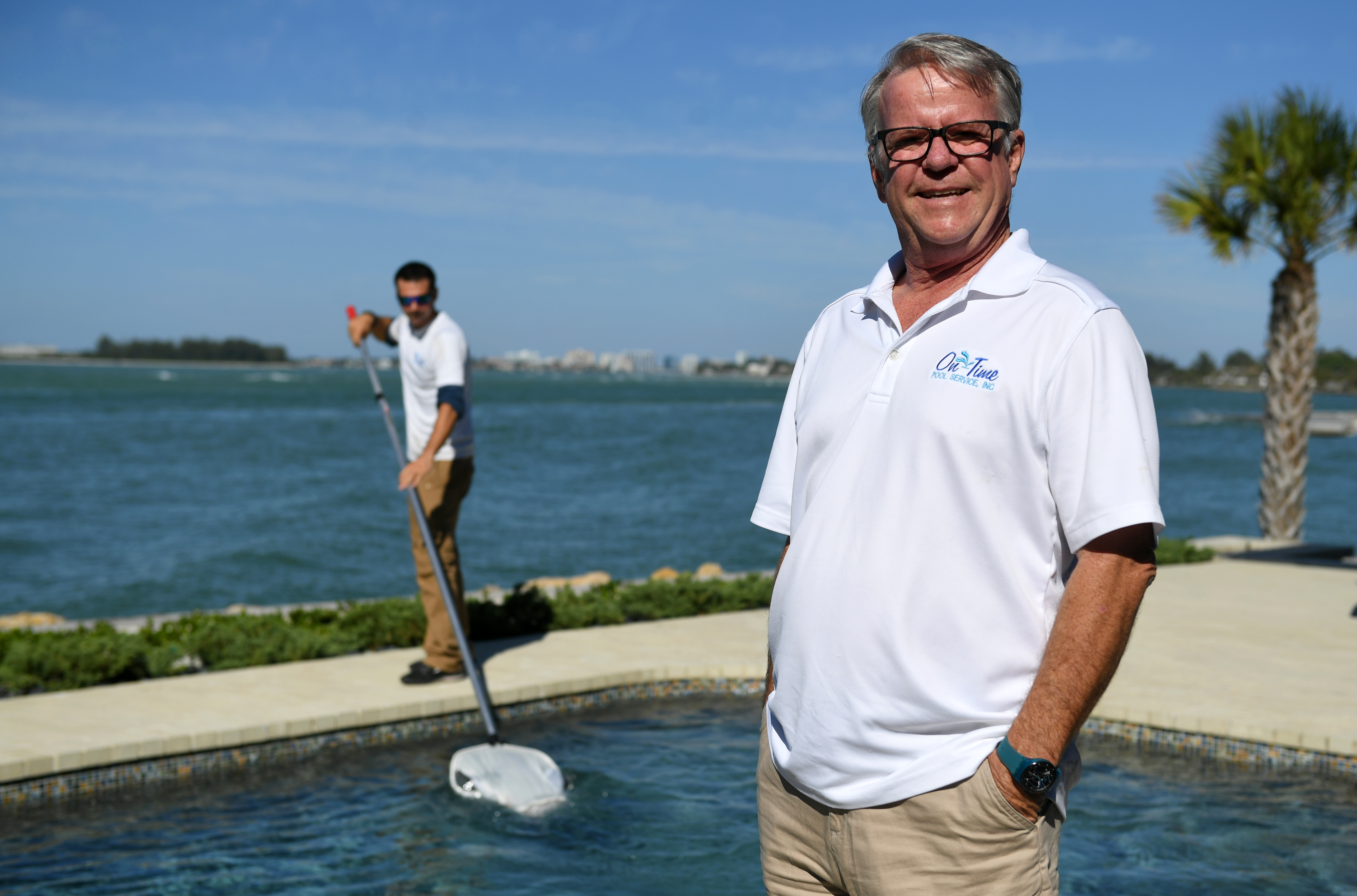
Response to 'Catching Our Drift' series expresses concern and hope
When Kirk Bradley started his Sarasota County pool maintenance service in 2004, he made an unusual decision: to pay his workers a salary instead of an hourly rate, at a level high enough to cover their living expenses.
"It wasn't so much strategic," he admits now. "It came out of respect for the person; I was basing it on what my history was, how I would want to be treated."
His 10 employees, he says, make more than $30,000 a year, well above the industry average for about 30 hours of work per week. He does not offer insurance benefits, but they all get paid time off between Christmas and New Year's Day. As a result, he believes, On-Time Pool Service has been able to attract and keep "respectful and dependable" workers, who pitched in to service more than 500 swimming pools in just four days after Hurricane Irma.
Bradley was one of 35 Herald-Tribune readers who sent in written responses to last month's series, "Catching Our Drift: How Sarasota County's fortunes are changing, and why that matters to all of us." The project focused on the ways in which this region's service economy, age demographics and housing costs are exacerbating the nationwide phenomenon of income disparity. Sarasota County's occupations adding the most employees — retail, health assistance, customer service, food preparation and landscaping — do not pay enough to cover rent on a one-bedroom apartment.
Yet there are signs that the current construction boom, with its high demand for workers, could be nudging more employers to make the calculation Bradley did, and compensate employees above the lowest possible wage.
Like many service industries, he notes, pool cleaning has a "low cost of entry," and competitors can charge less than he does. But he argues that paying a higher salary sets his company apart.
"With the lower turnover, I subsequently have less re-training of new technicians," Bradley wrote. "This benefits my customers in that they don’t have a new technician showing up on their back patio every month or so."
Corodon Fuller of Venice expressed hope that more employers are becoming willing to increase payrolls in the interests of a stable workforce.
"The squeeze of the long non-recovery has been spirit-crushing. It spawns cynicism and resentment," he wrote. "That's changing. And I hope it continues to. To cite one small example, Wawa's entry into the low-end convenience store market here in Sarasota County is creating turbulence in those ranks, and putting pressure on competitors like 7-11 to raise wages."
Like other readers, Fuller based his perceptions of economic disparity on firsthand knowledge of county residents in need. For three years, he said, he was one of the retirees mentioned in the series who took a low-paying job because he could afford to.
"The plan was to postpone receiving Social Security, and to stay active in some physical capacity," wrote Fuller, a former schoolteacher. "What surprised me was how broadening the experience would be. I met and came to know scores of people with whom I'd otherwise never have crossed paths, especially in retirement, including shift workers, and many who are indeed 'just one car breakdown away from financial disaster,' as you wrote. It has been a transformative experience for the better, and informs my outlook on many subjects."
Another retiree, John Hawk of Venice, wondered about the impact of volunteers on the local service economy, and questioned whether the type of unpaid work can be a factor.
"Volunteering to be a laborer with Habitat for Humanity, delivering meals on wheels to the homebound, mentoring or tutoring primary and secondary school students from underprivileged homes," Hawk wrote -- "these are volunteer opportunities that are distinct from volunteering for tourist-attracting events. They are roles that would likely never be filled by salaried workers, and they are activities that are a direct benefit to people who are more at risk of losing everything in a single, tragic life-event."
Kim Roden of Osprey drew her observations from her own experience as a volunteer: "While the country has a public health emergency due to opioid addiction, our own county has a housing emergency for the working poor. I wish our business and political leaders would garner the best thinking and planning for this basic need. I serve as a volunteer peer resource advisor for the Sarasota Women’s Resource Center, and can tell you this is nothing short of winning the lottery: Finding safe and affordable housing in our county is nearly impossible."
Shannon Jung of Bradenton, a Presbyterian minister who has taught at seminaries and universities, based a recent book on United Way Suncoast’s report on the county’s ALICE population — short for asset-limited, income-constrained and employed. "Building the Good Life for All: Transforming Income Inequality in Our Communities," is a guide for congregations seeking to make a difference amid complex economic pressures.
"Those who are caught above the poverty guidelines and below a livable budget; that group is growing," Jung said. "If the Christian faith means anything, it's that people ought to be able to flourish. We flourish together, or we are diminished together."